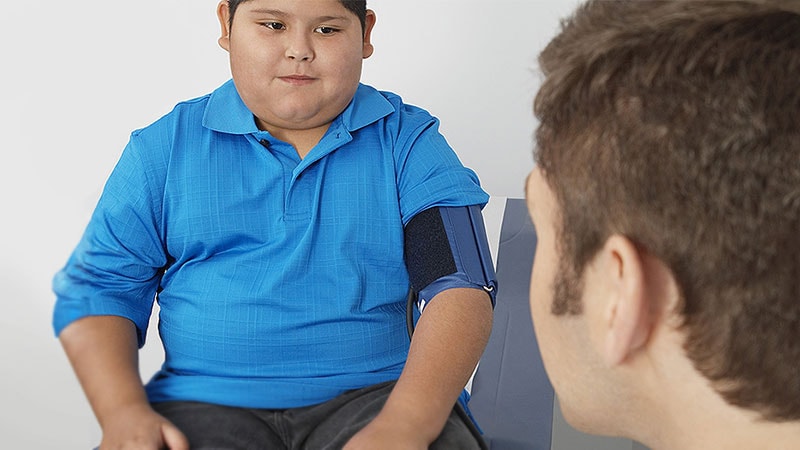TOPLINE: Children with obesity experienced better weight outcomes with a family-based intervention than with usual care, according to a new study.
METHODOLOGY:
-
Over a 2-year period, 452 children aged 6-12 years, who were overweight or had obesity, their parents, and 106 siblings were tracked.
-
Half of the families were enrolled in a program to help manage weight, exercise, and dietary intake. Families received materials like activity plans, parenting and behavior techniques, and guidance on “Traffic Light Eating,” which divides foods by red, yellow, or green and by order of caloric intake. The other half received usual care as laid out in Pediatrics in 2007.
-
Treatment also included weekly and monthly meetings to review eating and activity habits, and for weight checks.
-
Conducted at pediatric primary care clinics in four states.
TAKEAWAY:
-
Children, parents, and siblings had better weight outcomes compared with the control group, evident after 6 months and maintained over the 24 months.
-
At 6 months, for children, the between-group difference in change in percentage above median body mass index between the intervention and usual care groups was −6.5% (−3.2% for family-based treatment vs 3.3% for usual care; 95% confidence interval, −8.1% to −4.9%; P < .001).
-
Siblings had better weight outcomes in the intervention group, suggesting that behavioral treatment affects every member of a family.
-
Nearly three times as many children receiving family-based treatment met a clinically meaningful weight outcome compared with those receiving usual care (27.0% vs 9.3%; P < .001).
IN PRACTICE: “Family-based treatment can be successfully implemented in pediatric primary care settings and leads to improved weight loss outcomes among participating children and their parents and siblings.”
STUDY DETAILS: The study was led by Leonard H. Epstein, PhD, University at Buffalo, The State University of New York, and was funded by the National Institutes of Health (NIH).
LIMITATIONS: The researchers said that the study was limited by a smaller sample size of siblings, and much of the study was conducted during the COVID-19 pandemic.
DISCLOSURES: An author disclosed intellectual property related to family-based curricula. Coauthors disclosed fees and trial funding from Janssen, Provention Bio, Ascendis Pharma, Novo Nordisk, and OPKO Health, and a grant from the NIH.
Source: Read Full Article






